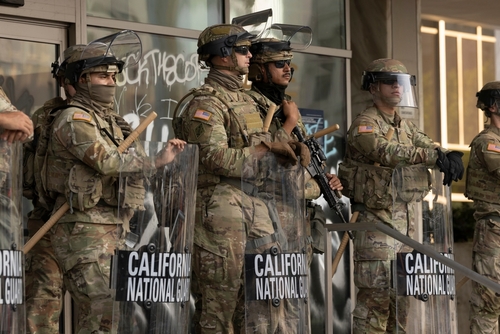The National Security Law imposed by Beijing has fundamentally dismantled Hong Kong’s autonomy, sparking international outrage.
The Erosion of Hong Kong’s Autonomy
In 2020, Beijing imposed the National Security Law on Hong Kong, a move that marked a significant shift in the region’s political landscape. This law has dramatically curtailed the freedoms promised under the “one country, two systems” framework established in 1997. The law allows for the prosecution of individuals deemed to be engaging in activities considered subversive, threatening national security, or colluding with foreign forces, leading to widespread arrests and a chilling effect on free speech.
Since its implementation, over 10,000 individuals have been arrested, with nearly 3,000 prosecuted and more than 2,400 convicted. The Hong Kong Police Force has been a critical player in enforcing the law, often accused of using excessive force against protesters. The region’s independent judiciary, once a hallmark of its autonomy, now faces increasing pressure to align with Beijing’s dictates, undermining public confidence in legal impartiality.
International Response and Human Rights Concerns
The international community has largely condemned the crackdown on Hong Kong’s freedoms. Human rights organizations, including Human Rights Watch, have labeled the situation as the end of Hong Kong’s autonomy. Western governments, particularly the United States and the United Kingdom, have voiced strong opposition, though their leverage remains limited. The global financial sector, traditionally robust in Hong Kong, is now facing uncertainties as businesses reevaluate their operations in light of the legal and political changes.
Hong Kong’s transformation into a “patriots only” polity has significant implications for its residents, many of whom are contemplating emigration due to the looming threat of political repression and diminishing freedoms. The chilling effect extends beyond politics, affecting academic freedom and civil society’s ability to function independently.
The Future of Hong Kong and Its People
The closure of independent media outlets such as Apple Daily and Stand News has further stifled dissenting voices. These outlets were instrumental in providing news coverage and advocating for press freedom. With their silencing, the flow of unbiased information has been severely restricted, leaving a void in public discourse. As Beijing tightens its grip, the future of Hong Kong as a vibrant, autonomous region seems increasingly uncertain.
Trump acts while 'Black Lives Matter' mayors fail @BigCityAndrew https://t.co/mq8WL0RLOk via @OutLoudNews
— America Out Loud News (@OutLoudNews) August 28, 2025
Looking ahead, the ongoing trials of prominent activists, including figures like Jimmy Lai, highlight the continued repression of pro-democracy advocates. The long-term implications of these developments include not only the erosion of civil liberties but also the potential loss of Hong Kong’s status as an international hub for commerce and innovation. As the world watches, the struggle for Hong Kong’s soul continues, with the hope that international pressure might eventually lead to meaningful change.
Sources:
Wikipedia: 2019–2020 Hong Kong protests
The Business Standard: Timeline of Hong Kong protests
Council on Foreign Relations: Hong Kong’s Freedoms and China’s Crackdown
Human Rights Watch: Building a ‘Patriots Only’ Hong Kong


Until recently, I have not seen nor heard about Hong Kong,,,as if the earth swallowed it up-which now, in a sense, the earth seems to be doing. Once when freedoms existed, now, no more or soon to be no more. People will leave Hong Kong while they can, that includes businesses. If not leaving soon, they take the chance of having that choice barred. China is not a liberator, it is a communist nation and behaves as a communist nation. The World has changed-and continues to change. Hong Kong is no longer Hong Kong.